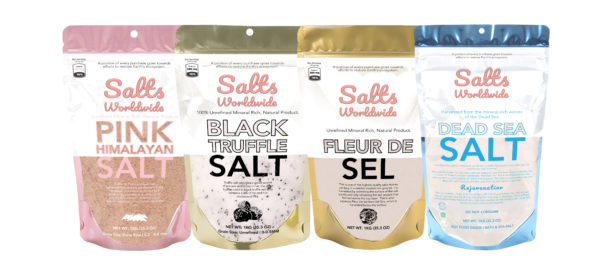
What is the Difference Between Kosher and Regular Salt?
What is the difference between kosher and regular salt? When most people hear the word kosher, they automatically think of the Orthodox Jewish dietary laws of, God’s holiness, kosher salt. These same people are probably assuming that the difference between the two is simply a matter of purity. Let’s take a closer look.
There are indeed a number of differences between the two, but the similarities outweigh the differences. We will begin with some of the differences.
The most important difference between kosher and regular salt is the nature of the salt. Kosher salt is a highly refined and purified product, which was created to provide the consumers of kosher food with an improved level of nutritional value. When you are buying salt you are provided with kosher salt.
Regular salt on the other hand is a coarse salt, which is ground up from sea salt. These sea salts are highly irradiated, which provides the salt with a much higher level of natural nutrition. The irradiation also adds a pleasant salty taste to the salt. Kosher salt is produced in larger numbers than regular salt, which has resulted in less wastage.
When comparing the difference between kosher salt and regular salt, there are a number of facts that you should keep in mind. The three main differences between the two are the salt’s electrical conductivity, its amount of sodium and its sodium content. There are others, but these are the main differences that you should keep in mind. You will also find that the process of refining the salt to achieve a high level of saltiness varies slightly between the two.
Electrical Conductivity. The electrical conductivity of the salt depends on the process that was used to create the salt. When the salt is purchased, the salt is heated to a certain temperature, which causes the sodium ions to separate and float to the top of the salt. This process, called evaporation, effectively removes the sodium from the salt.
Salt is best when it is not too salty. When the salt reaches a certain level of saltiness, it will become salty. Even though the sodium content of the salt remains the same, its electrical conductivity begins to fall. The density of the salt, which is one of the most important factors when making salt, also decreases.
The salt that is most often used in the United States is Kosher salt. This salt is usually a yellowish colour in colour, but will be of a uniform thickness. The salt is usually not too hard, but it does have a very high density, which results in a somewhat denser salt.
Sodium. Salt is comprised of a high percentage of sodium. This sodium content is an indicator of the salt’s usefulness and health value. The sodium content of salt is an indication of the amount of sodium in the salt.
The difference between kosher and regular salt has a lot to do with the ratio of sodium to chloride. The chloride content of the salt can make the salt more valuable to its consumer. Chloride is not good for health and can cause one to get sick when consumed. Chloride has a potential to damage a person’s kidneys and to increase the risk of developing kidney disease.
The salt, which is made from sea salt is less prone to oxidizing. The salt content also tends to be higher. The high chloride content means that the salt is more stable, which means that it tends to last longer in storage.


